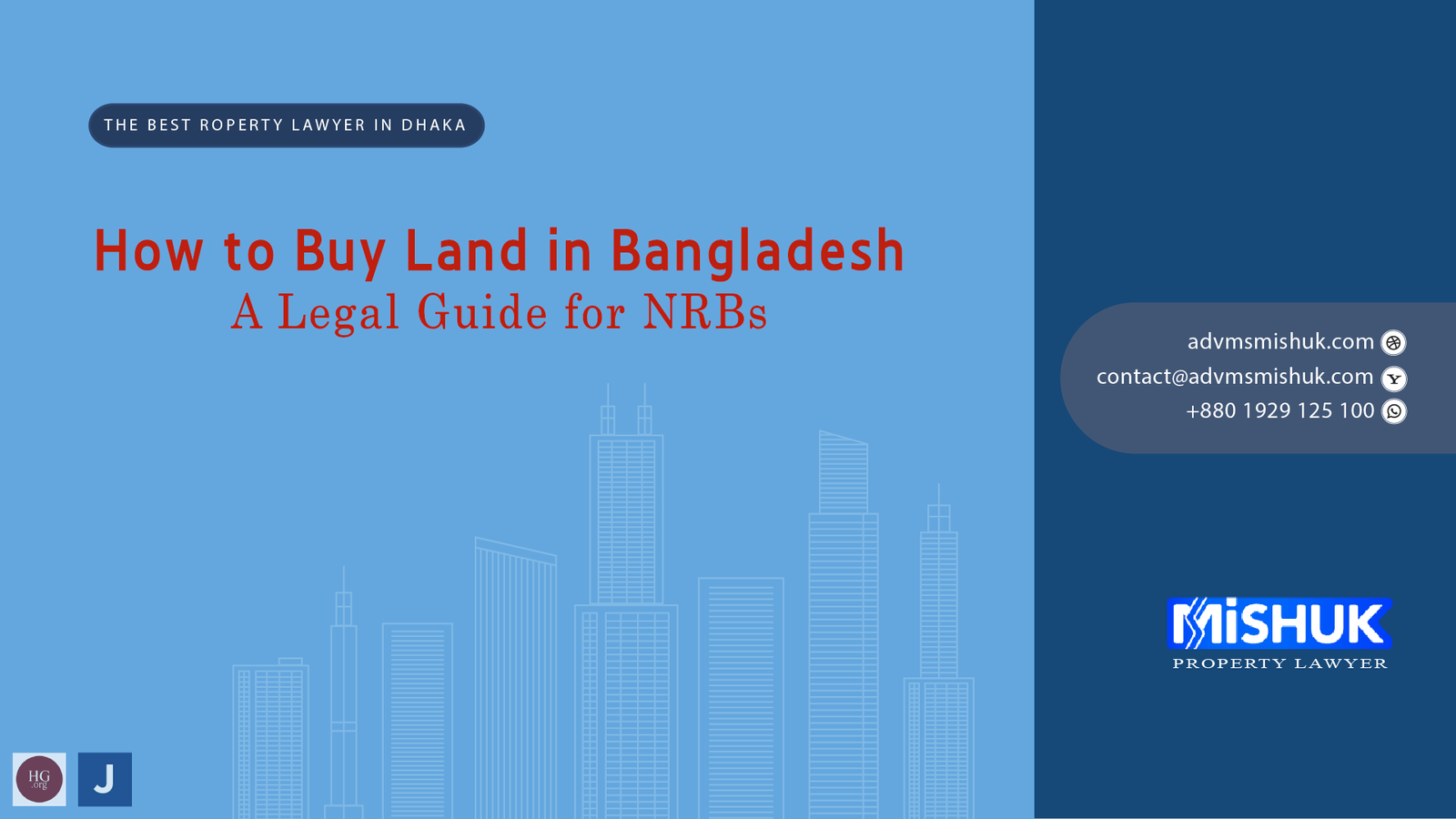RajUK property transfer process
RajUK property transfer process for flat, plot, or commercial space involves a process distinct from regular private property transfers. In the case of leasehold properties acquired through RajUK (Rajdhani Unnayan Kartripakkha) in Dhaka, additional regulations apply.
Moreover, RAJUK has developed its own structured property management system for areas like Gulshan, Banani, Baridhara, Uttara, Nikunja-1 & 2, and Purbachal New Town—separate from private and khas land administration.

Why transfer permission is important?
Obtaining sale or transfer permission is mandatory whenever a RAJUK-allocated property changes hands be it through purchase, sale, or inheritance.
Though the process is seem to be very complex and time-consuming but this process is comparatively beneficial for the seller, buyer and successors of the allotted owners.
In my long-standing experience, I have observed that most people have a limited understanding of this process.
As a result, when they attempt to buy or sell a RAJUK leasehold property, they often encounter complications related to RajUK sale permission, mutation approval, deed registration, and legal compliance for the Bayna or sale agreement.
What is RajUK Sale Permission?
RajUK Sale permission is an official written approval issued by the Rajdhani Unnayan Kartripakkha (RajUK) for the transfer of property ownership. This document outlines and confirms the following details:
- Name and particulars of the seller or current owner
- Name and particulars of the buyer or legal successors
- Specific identification of the property being transferred
- Declared value of the property
- Type of deed to be registered
- Timeframe within which registration must be completed
- Issuing reference number and date
- Conditions and requirements applicable to the transfer
Without sale permission, no transfer shall be valid. Provided that, apart from the RajUK flat or plot buy and sale a written transfer permission must be taken for registration of Heba Deed, Partition Deed, Exchange Deed, Power of Attorney deed along with inheritance registration.
When is transfer permission required?
The transfer permission is required for the RajUK allotted apartments, plots (residential and commercial), commercial spaces, shops or any other properties that the RajUK leases. It is named differently, subject to the modes of transfer.
Such as, sale permission for registration of sale deed, Heba permission for registration of Heba deed, Partition for registration of partition deed, and Power of Attorney permission for registration of power of attorney.
Example: Mr. ‘X’ wishes to transfer his RAJUK-allocated flat to Mr. ‘Y’ through a Heba Deed (gift), or if multiple heirs like Person ‘X’, ‘Y’, and ‘Z’ want to register a Partition Deed, they must first obtain written partition permission from RAJUK. The same applies for registration of Exchange Deeds or Power of Attorney deeds and others.
Documents required for RajUK property transfer procss
Both buyer and seller must jointly apply and submit the following documents:
- Duly filled application (as per RAJUK format) with Notarized Affidavit
- Two passport-size photographs of the buyer & seller
- NID, passport, or birth certificate of both parties
- TIN and updated income tax return of both parties
- Copy of allotment letter and lease deed (or title deed)
- RAJUK mutation in the name of current owner
- Succession certificate (for inherited properties)
- Power of Attorney deed (for developer companies or authorized representative)
- Power Acceptance letter from RAJUK (for developer companies or authorized representative)
Steps of RajUK property transfer
As the specific steps may vary slightly depending on the type of transfer, the overall process is similar. For RajUK leasehold properties, transfer can take place in the following ways:
- Sale Deed – Transfer of ownership through a formal sale agreement.
- Heba Deed – Transfer made as a gift, commonly used among family members under Muslim law.
- Partition Deed – Division of property among co-owners or heirs.
- Mortgage Deed – Transfer as a security for a loan or financial obligation.
- Power of Attorney (POA) – Authorizing someone to act and transfer property on one’s behalf.
- Inheritance – Automatic transfer of property to legal heirs upon the death of the owner.
- Court Order – When a judgment of the court specifies someone’s title.
Common process transfer application
| Step | Action | Details |
| Step 1 | Application Submission | Buyer or seller (or their lawyer) submits the application in prescribed format supported by affidavit (notarized). |
| Step 2 | Hajira (Physical Appearance) | RajUK issues a notice. Both parties must appear with original documents, NID, tax papers & photos. |
| Step 3 | Property Inspection | A RajUK inspector visits the property. He ensure the legality of possession and constructed building wheter its comply with approved RajUK building plan. |
| Step 4 | Note Approval | The file is reviewed and approved in sequence by: Assistant Director → Director (Estate) → Member (Estate). |
| Step 5 | Payment Notice | RajUK asks the applicant to deposit transfer fees, documentation charges, and 15% VAT within 1 month through the bank channel. |
| Step 6 | Sale Permission Issuance | After payment, RajUK issues the transfer permission to the application and a copy to the concerned Sub-Registrar to proceed with deed registration. |
Step-by-Step Process for Obtaining RajUK Sale Permission
What is RAJUK Mutation?
RajUk mutation is the process of listing new owner’s name to the official record instead of the previous owner. This is a mandatory step of legal transfer of a property through sale, gift, inheritance, or other forms of ownership transfer.
It establishes the transferee’s legal right and title to the property. If someone ignores the mutation or is late to update the record in time, they may face serious issues, including the inability to sell, transfer, mortgage, or even enjoy undisputed ownership of the property.
When to Apply for Mutation?
Mutation should be applied for immediately after a property transfer has taken place. This includes transfers through registered deeds such as a Sale Deed, Heba (gift) Deed, or Partition Deed as well as inheritance.
However, transfers involving Power of Attorney or Mortgage Deeds typically do not require mutation.
A mutation application should be submitted within one month of deed registration or receipt of a succession certificate. Delays in applying for mutation often result in additional formalities, prolonged processing time, and possible legal complications.
Documents Required for RajUK Mutation
The mutation application requires less documentation and attachments to complete the process
- Mutation application with notarized agreement with RajUK
- Sale/gift/partition deed (certified copy)
- RajUK’s sale permission letter (photocopy)
- NID, TIN, and tax return of the applicant
- Passport-size photo of the applicant
RajUK Mutation Fees
Rajuk mutation application requires deposit of government fees against the flat, plot or commercial spaces as prescribed by the Citizen Charter -2024. The citizen charter specifically states the procure, timeline and applicable fees for the RajUK mutation, Sale Permission and other works.
Along with the applicable government taxes, there are some other additional costs to be borne by the applicant. These miscellaneous expenses include the Documentation Cost, Non-Judicial Stamp duty, Affidavit and Notarization, Lawyer fees (if appointed), and others.
Land Mutation after RajUK Mutation
As soon as the RajUK Mutation is completed, the owner must apply for the land mutation at the concerned AC Land Office. Land mutation is important for establishing the title, online ownership record and payment of land tax.
We found many cases where the land owner ignored the Land Mutation after lease or RajUK mutation which later resulted as severe harassment and legal compliance. Therefore, suggest completing the Land mutation within 1(one) month of RajUK Mutation.
RajUK Mutation VS Land Mutation
| Fields | RAJUK Mutation | AC Land Mutation |
| Purpose | Update owner record in RAJUK registry | Update govt. land ownership record |
| Where it Applies | RAJUK areas (Banani, Gulshan, etc.) | All lands under government survey |
| Documents Required | Deed, Sale Permission, NID, TIN | Deed, Mutation Khatiyan, application |
| When to Do It | After deed registration (1 month) | After RAJUK mutation |
| Importance | Legal proof for future RAJUK dealings | Ownership title, land tax & registration |
RajUK property transfer : Tips for Property Buyers and Sellers
- Always ensure the property has clear title and up-to-date mutation record.
- Check for any pending fees or dues with RAJUK and Dhaka City Corporation.
- Never proceed with payments or registration without obtaining sale permission.
- Retain and preserve the copies of all submitted and received documents.
- If purchased from the developer, keep all copies of RajUK building plan and occupancy
- If the seller wish to process documentation from abroad, do it through the consular office
- Engage a licensed property lawyer to vet papers and prepare documentation.
Common Mistakes to Avoid in RajUK property transfer
- Taking too much time to obtain RajUK sale permission
- Crossing the deadline of Registration
- Delaying RajUK and AC land mutation after registration
- Submitting incomplete or improper documents
- Assuming Power of Attorney is alternative to the sale permission
- Ignoring legal vetting and due diligence from the professional
- Ignore to preserve the documents properly
- Not maintaining payment record in written
Conclusion
Obtaining RajUK sale permission and completing the mutation process are not mere formalities but they are essential steps that safeguard your property ownership rights and maintain the legal and commercial value of your asset.
Property laws in Bangladesh is quite complex for those who are not accustomed with it. If you’re uncertain at any stage, it’s wise to consult an experienced property lawyer in Dhaka. Proper compliance with RAJUK regulations can help you avoid costly delays, legal disputes, and future complications.
Frequently asked questions (FAQ)
1. What is RajUK Sale Permission?
RAJUK Sale Permission is a written consent from RAJUK allowing the legal transfer of flats, plots, or commercial spaces from its leasee to others.
2. When is RajUK Sale Permission is required?
To register a sale, gift (heba), partition, power of attorney, exchange, or even inheritance Sale permission is necessary.
3. What documents are needed for transferring RajUK property?
You’ll need to prepare and submit:
- NID, updated tax return certificates
- Allotment letter
- Lease deed
- Mutation (with khajna, DCR and Proposal)
- Title deed/Via deed
- Recent passport-size photos
- Notarized affidavits
- RAJUK-prescribed application form and undertaking
4. How long does the RajUK property transfer process take?
A sale permission process usually takes 2-3 months to complete. Its depend on the class of property, inspection and official formalities.
5. Can I transfer a RajUK property without completing mutation?
No. Mutation is a compulsory legal step after registration.
6. What are the costs involved in RajUK mutation?
Mutation expenses typically include:
- Official government fees as per RajUK Citizen Charter 2024
- 15% VAT
- Stamp duty and deed costs
- Lawyer fees for legal drafting, verification, or representation
7. What if mutation is delayed after deed registration?
A delayed mutation can create serious issues during future sales, inheritance claims, or bank mortgage applications. Additional affidavits or re-verification may also be required later.
8. Is Power of Attorney (POA) acceptable for RajUK property transfer?
Yes but only with RAJUK’s prior approval.
9. Is RajUK mutation the same as mutation at the AC Land office?
No, they are entirely separate.
10. Should I consult a lawyer for RajUK property transfer?
It’s highly advisable to consult a property lawyer in Dhaka who is experienced in RAJUK procedures. An expert lawyer can ensure proper documentation, smooth and fast processing, and full legal compliance, minimizing your investment risk.

Talk to a property lawyer in Dhaka
Matin Sarkaer Mishuk
Advocate, Supreme Court of Bangladesh


